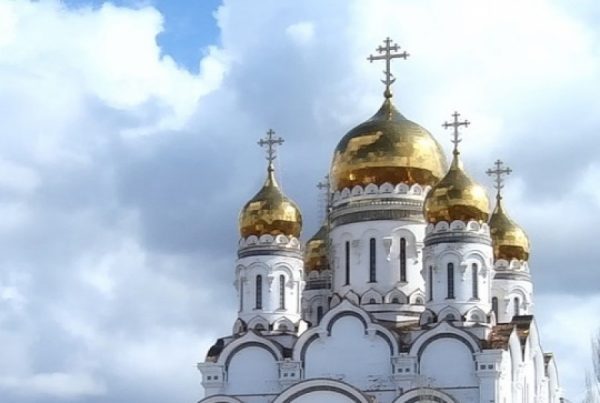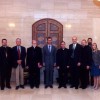“O Word of the Father from before the ages, Who, being in the form of God, broughtest creation into being out of nothing; Thou Who hast put the times and seasons in Thine own power: Bless the crown of the year with Thy goodness; give peace unto Thy churches, victory unto Thy faithful hierarchs, fruitfulness unto the earth, and Great Mercy unto us.”
+Orthros of the Feast, Tone 3
A reflection by Fr. Joseph Huneycutt’s on the new ecclesiastical year:
It seems odd saying ‘Happy New Year’ in September, but that’s when the Church marks Her annual beginning. September 1st (14th) is, for the Church, the first day of a new year. A pious tradition of the Church holds that Jesus of Nazareth began preaching the good news of His mission on September 1st. When our Lord entered the synagogue, He was given the book of the Prophet Isaiah to read, and He opened it and found the place where it is written:
The Spirit of the Lord is upon me, because he has anointed me to preach good news to the poor. He has sent me to proclaim release to the captives and recovering of sight to the blind, to set at liberty those who are oppressed, to proclaim the acceptable year of the Lord.
And he closed the book, and gave it back to the attendant, and sat down; and the eyes of all in the synagogue were fixed on him. And he began to say to them, ‘Today this scripture has been fulfilled in your hearing’ (Luke 4:18-21).
Tradition also holds that it was during the month of September that the Hebrews entered the promised land. And, the custom of beginning a new year with autumn was common in Biblical and Mediterranean lands because the summer harvest was completed, the crops were stored, and it was a time when people began preparing for a new agricultural cycle. It was an appropriate time for a new beginning. This is evident in the services for the New Year as the Church beseeches God for fair weather, seasonable rains, and an abundance of the fruits of the earth.
As we begin this new year it should be noted that the church calendar is loaded with important events, especially the 12 great feasts, the four fasts, and Pascha. Also, each day of the church year is set aside to honor saints; many of whom died on that particular date. Similar to our personal calendars where we mark the earthly birthdays of family and friends, the Church remembers the saints on their “heavenly birthday” — the day they passed from this life to Paradise.
Liturgically, the church year begins and ends with the Mother of God. The first great feast of the year, September 8, honors her birth; the last great feast of the year, August 15, remembers her falling asleep. Between these two great feasts the Church marks 10 other major Feasts and Pascha, the Feast of Feasts. The dates for Palm Sunday, Pascha, Ascension, and Pentecost vary each year. The Apostles’ Fast can vary in length. It begins on the Monday after All Saints Sunday (the first Sunday after Pentecost) and ends with the feast on June 29. Each parish also celebrates its “altar feast” on the day set aside for its patron saint, feast, or name.
The wall calendars that most parishes make available each fall include many of the daily saints and readings for the year. Also, most people have their own patron saint — or “nameday” — to remember, as well as other favorite and family saints’ days.
Why not start the new ecclesiastical year off right? Mark your personal calendar with the feasts, fasts, and saints days of the Church. Make a resolution to participate in the liturgical cycle of the Church. Unlike mundane New Year’s resolutions, marking your calendar, keeping the feasts and fasts, and embarking for a new life within the annual life of the Church, is a wonderful way to sanctify time. Let’s all join together in making this an “acceptable year of the Lord!”
Happy New Year!
Listen to Fr. Thomas Hopko speak about the new ecclesiastical year on Ancient Faith Radio.

















